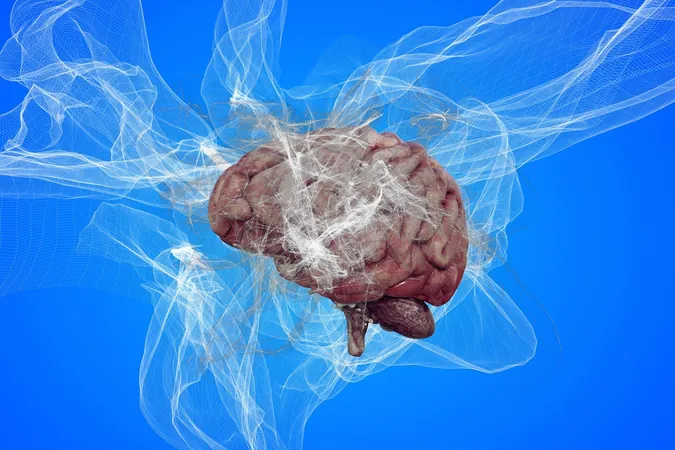
Breakthrough Discovery: 'Alzheimer's in a Dish' Model Revolutionizes Drug Development!
2024-11-27
Author: John Tan
Introduction
In a groundbreaking advancement for Alzheimer's research, researchers have transformed the study of this devastating disease over the last decade through an innovative model known as "Alzheimer's in a dish." This sophisticated technique utilizes mature brain cell cultures suspended in a gel, enabling scientists to replicate the progression of Alzheimer's—typically spanning 10 to 13 years—within a mere six weeks.
Validity of the Model
But do these lab-grown models truly reflect the biological changes occurring in people suffering from Alzheimer's? A new study led by experts from Mass General Brigham, in collaboration with Beth Israel Deaconess Medical Center (BIDMC), introduces an unbiased algorithm designed to analyze the accuracy of these Alzheimer’s models against real patient data. The findings, published in the prestigious journal Neuron, affirm that the "Alzheimer's in a dish" model is not only valid but also a critical tool for the rapid assessment of new drugs and the overall drug discovery process.
Research Insights
"Our mission is to identify the most reliable model that closely simulates the activity evident in the brains of Alzheimer's patients," explained co-senior author Doo Yeon Kim, Ph.D., from Massachusetts General Hospital's Department of Neurology. "Having developed this 3D cell culture model a decade ago, we now possess robust data confirming its ability to expedite drug discovery."
Collaboration for Effective Treatments
This pivotal research highlights a collaboration among skilled professionals in neurology and data science, united by the objective of uncovering more effective treatments for Alzheimer's disease (AD). Historically, Alzheimer's research has grappled with significant obstacles, particularly the limitations posed by traditional mouse models, which fail to exhibit key characteristics of the disease, such as amyloid plaques, that are prevalent in human brains.
Pathway Analysis and Drug Targeting
The researchers not only created various models over the years but also sought to ascertain their accuracy in reflecting the complex molecular changes seen in actual Alzheimer's patients’ brains. Co-senior author Winston Hide, Ph.D., from BIDMC's Department of Pathology, stated, "Our primary challenge was to identify which models accurately portray the intricacies of Alzheimer's within human brains. By shifting our focus from isolated genes to broader biological pathways, we have completely transformed the landscape of drug discovery and testing."
Integrative Pathway Activity Analysis Platform
Led by Pourya Naderi Yeganeah, Ph.D., and Sang Su Kwak, Ph.D., the team developed an advanced integrative pathway activity analysis (IPAA) platform that identifies which models most accurately replicate the functional changes associated with Alzheimer's and highlights critical pathways of interest for drug development.
Identifying Dysregulated Pathways
Through their research, they pinpointed 83 dysregulated pathways that were common between brain samples from deceased Alzheimer's patients and the 3D cellular models. One such pathway, the p38 mitogen-activated protein kinase (MAPK), was tested as a concept for drug targeting. Remarkably, they discovered that a clinical p38 MAPK inhibitor, which has yet to be tested in Alzheimer's patients, displayed impressive efficacy in reducing disease pathology in their models, signaling its potential for future clinical trials.
Innovative Drug Target Identification
Furthermore, the platform’s innovative design enables the identification of multiple promising drug targets simultaneously. This capability, paired with the accelerated testing process of the Alzheimer's in a dish model, allows for a comprehensive examination of numerous drug candidates in a short timeframe.
Future Prospects and Conclusion
To date, researchers have evaluated hundreds of FDA-approved drugs and natural compounds using this robust model, laying the groundwork for forthcoming clinical trials. With these promising developments, the hope is that the scientific community can finally fast-track the search for effective Alzheimer’s treatments, bringing new hope to millions affected by this challenging disease.
Stay tuned as we witness the revolution in Alzheimer's research unfold, potentially changing lives across the globe!


 Brasil (PT)
Brasil (PT)
 Canada (EN)
Canada (EN)
 Chile (ES)
Chile (ES)
 España (ES)
España (ES)
 France (FR)
France (FR)
 Hong Kong (EN)
Hong Kong (EN)
 Italia (IT)
Italia (IT)
 日本 (JA)
日本 (JA)
 Magyarország (HU)
Magyarország (HU)
 Norge (NO)
Norge (NO)
 Polska (PL)
Polska (PL)
 Schweiz (DE)
Schweiz (DE)
 Singapore (EN)
Singapore (EN)
 Sverige (SV)
Sverige (SV)
 Suomi (FI)
Suomi (FI)
 Türkiye (TR)
Türkiye (TR)